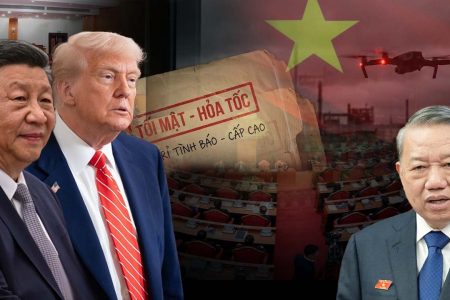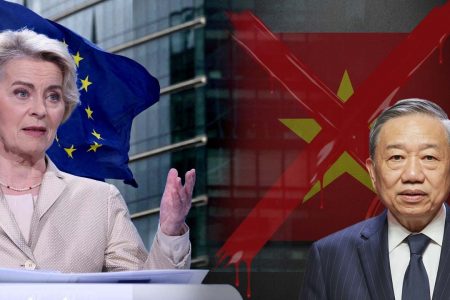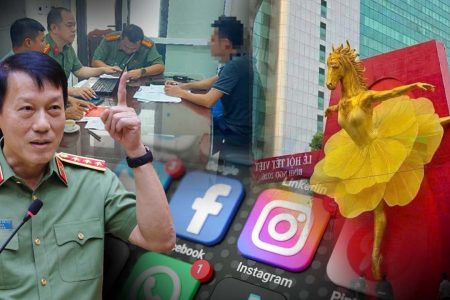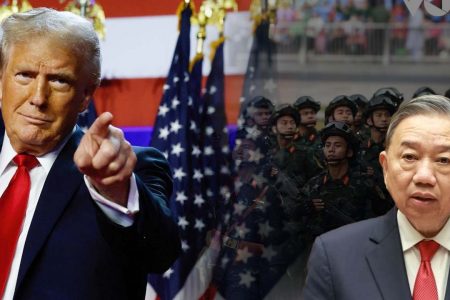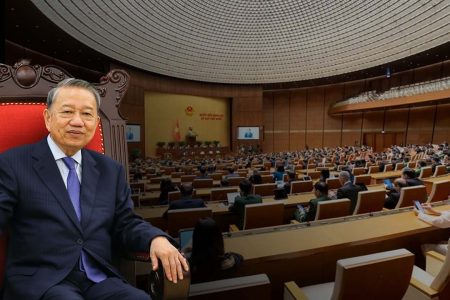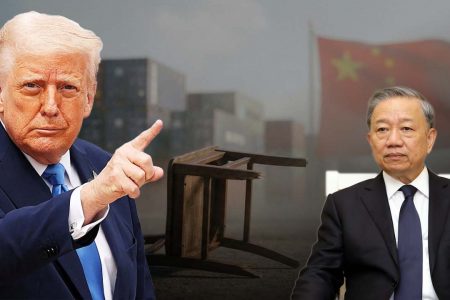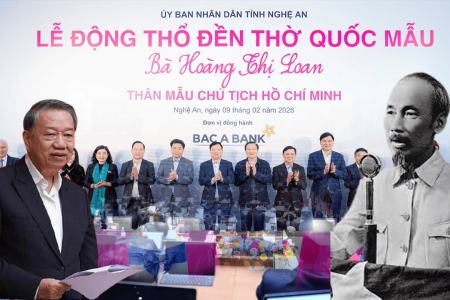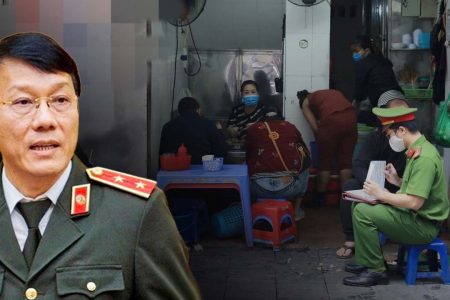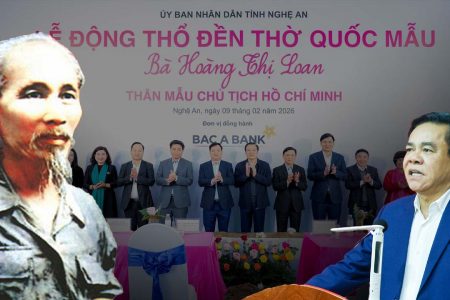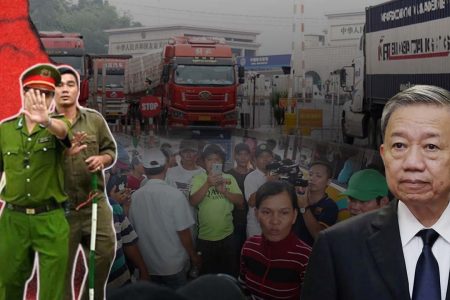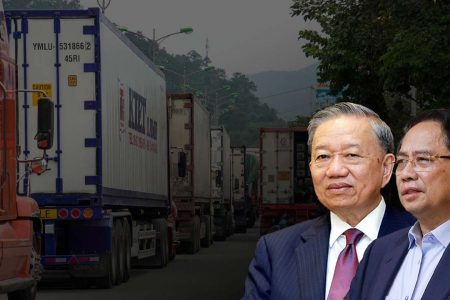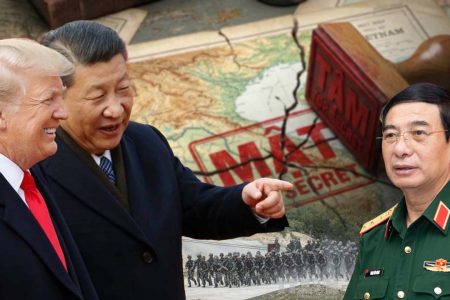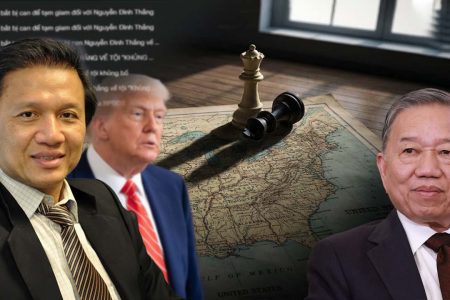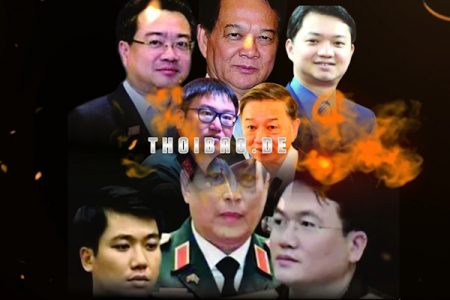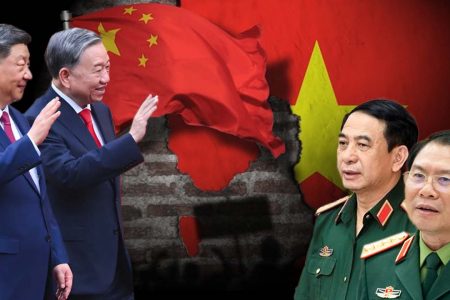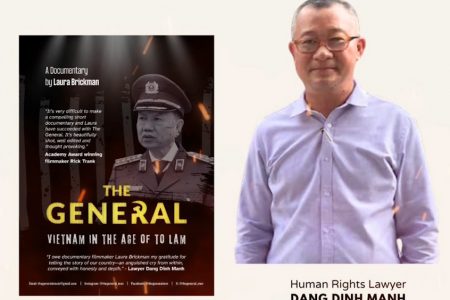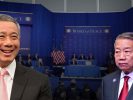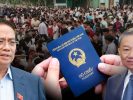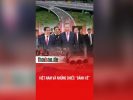In the record of Vietnam-Germany relations since the kidnapping of Trinh Xuan Thanh in 2017, there has rarely been an event that so clearly exposed the Vietnamese government’s strategy of controlling information and its obsession with free media as the decision to probe journalist Le Trung Khoa, who is residing and conducting press activities completely legally in Berlin.

This event did not take place in a political vacuum, it appeared exactly after the German court dismissed the lawsuit of Pham Nhat Vuong, chairman of Vingroup, against Khoa.
This cannot be considered a coincidence. It bears the mark of a campaign to respond, deter and re-establish power in the context of Vietnam’s internal situation entering the preparation phase for the 14th National Congress of the ruling Communist Party of Vietnam (CPV), where all media fluctuations are placed under a highly political prism.
Failure in Germany and the fear of a dangerous precedent for the power system
For many years, Vingroup has been considered a typical example of the „crony enterprise“ model, developing based on the favor of the state apparatus, enjoying legal privileges and the state-controlled media. Such a business, when bringing a Vietnamese journalist living in Germany to court in Vietnam, is not only to protect its reputation but the larger goal is to create a precedent that its economic and political influence can go beyond the territorial borders and Vingroup cannot be the subject for humiliation.
However, the Berlin court’s ruling goes in the completely opposite direction:
* The court recognized that the information posted by Le Trung Khoa was of „public interest.“
* The court affirmed that the freedom of the press under „Article 5 of the German Constitution“ is an inviolable foundation.
* The court rejected Vingroup’s request for compensation, which indirectly „disavowed the argument that Le Trung Khoa was “slanderous.”
This is a direct blow to Vingroup’s ambition to expand its soft power – and further, a blow to the expectations of some powerful groups in the country that they can use international legal mechanisms to deter independent media.
When the failure in Germany becomes obvious, the domestic reaction must go in the opposite direction to rebalance the information and image „front.“ And that is the starting point of the option to initiate criminal prosecution in Vietnam.
What is the purpose of probing, when Germany never extradites?
The decision to probe journalist Le Trung Khoa in Vietnam, from a legal perspective, is almost unlikely to lead to practical consequences:
* Germany does not extradite people to Vietnam in cases with political elements or related to freedom of speech.
* The EU lists Vietnam as a country at risk of abusing Interpol for the purpose of suppressing political dissent opinion.
* Vague charges such as Articles 117 and 331 are only effective domestically and are not and are not in line with international legal standards for recognition.
Therefore, the objective of the criminal investigation against journalist Le Trung Khoa is not to arrest but to mark. It creates three layers of effects:
a. Domestic impact
In an information environment that is tightly controlled, probting an overseas journalist sends a signal that the regime still holds the power to define “true-false,” “right-wrong,” and “acceptable-unacceptable.”
Probing becomes a tool of perception control, aimed at discouraging those in the country who are following and sharing information from channels outside the border.
b. Foreign impact
Despite knowing for sure that it will cause a reaction from Germany and the EU, the Vietnamese authorities still proceed, because the strategic calculation focuses on internal stability and institutional authority, which is higher than short-term diplomatic interests.
c. Impact on the system overseas media ecosystem
Here is a message to all independent channels: “Whether you live in the US, Germany or Australia, we can still prosecute. You will have a criminal record and will have to think twice about speaking if you have relatives or assets in the country.” This deterrent, although not physically affecting the body, is aimed at the fear for the “family and relatives” which is a weakness of many Vietnamese living abroad.
Model of “re-establishing power” after international failure
If we put the probing in a broader context, we can see a familiar pattern, that when the power system is challenged internationally, they use domestic criminal tools to consolidate power. This has happened in many situations:
* After human rights hearings in the EU and the US, Vietnam increases arrests of domestic activists.
* After being accused of religious repression, the government increases the frequency of handling cases related to the Duong Van Minh group or independent churches.
* After failing in an international legal case, the police expand the investigation into related media channels.
Le Trung Khoa case is just a new piece in the same strategy: „Demonstrating domestic power after losing prestige in the international space“ as a way to compensate.
Why did this event take place at a sensitive time before the 14th National Congress?
Even a casual observer can see that the timing of the prosecution is clearly political.
(1) Stabilizing the media front before the power transfer period
The 14th National Congress is the event that decides to restructure power for the 2026-2031 period. In the context of increasingly fierce information disintegration and factional fighting, „whoever controls the information controls the game.“
Channels like Le Trung Khoa’s Thoibao.de provide a lot of internal news that the domestic system cannot refute with the mainstream press because of its lack of persuasiveness.
By initiating probing, Vietnam’s Ministry of Public Security wants to:
* Weaken the credibility of the source.
* Warn those who are providing information to Khoa.
* Minimize the impact of independent media on domestic public opinion.
(2) Protect the image of crony interest groups
Vingroup has a special position in Vietnam’s economic-political structure. Therefore, their failure before the German court is not only the failure of a business, but also the failure of the political-economic relationship model that has been shielded and supported for many years. Probing Le Trung Khoa is a way to affirm that „No matter what the German court decides, in the country, we are still the final judge.“
(3) To Lam and the need to demonstrate comprehensive power
Since becoming the head of the party, To Lam’s power continues to revolve around the only pillar that he firmly holds police, security, and media. By probing the journalist living in Berlin, the Ministry of Public Security sends a double message:
* To the opposing side: „we still control the information front“ and
* To friendly businesses: „we are still a reliable ally.“
In terms of law: The decision to probe journalist Le Trung Khoa is a weak „indictment“ but a strong political message.
Although the full details of the case have not been made public, the indictment of journalist Le Trung Khoa under Article 117 of the Criminal Code for the crime of propaganda against the State is not only completely incompatible with international legal standards but also inconsistent with the Vietnamese Constitution, and cannot be used as a basis for extradition or judicial cooperation with Germany.
Therefore, the results of the probing are not aimed at achieving legal effectiveness but at political goals:
* Creating an investigation file for domestic propaganda.
* Putting psychological pressure on Khoa’s family or relatives in Vietnam (if any).
* Creating a precedent for dealing with other freelance journalists in the future.
According to international practice, Germany and the EU will soon react – even strongly – because this event touches on two of their “sensitive points”:
- Freedom of the press, which is legally protected at the highest level.
- Security of refugees and exiles, after the Berlin sovereignty violation in 2017 when Vietnam’s police kidnapped Trinh Xuan Thanh and brought him back to the country where he is punished with lengthy imprisonment.
The decisive “wind blow” sent to the independent media community
Even if it does not affect the body or activities of journalists abroad, the prosecution still has a ripple effect:
* Other independent journalists will be more cautious.
* Domestic sources will be wary when communicating.
* Many people in the country will be psychologically affected by the propaganda that “those who criticize the government are all criminals.”
From the perspective of the security apparatus, the important thing is not to arrest but to sow enough fear to break the underground information line between inside and outside the country. But there is also a consequence that the government did not foresee, which is the Streisand effect [*]
Prosecuting a journalist living in Germany not only does not stop their voice, but also:
* Increases their personal reputation in Europe.
* Brings more attention to the activities of independent channels in the international media.
* Exposes how Vietnam uses the law as a political tool.
In the context of increasingly close international monitoring of Vietnam’s human rights, this action inadvertently reinforces the image that the Vietnamese government has worked so hard to mitigate after Trinh Xuan Thanh’s abduction, as a state that does not hesitate to reach out to repress across borders.
Prediction: This is just the beginning of a cycle of tightening media before the party’s National Congress
Based on internal signals and the Ministry of Public Security’s model of action over the past five years, it is likely that:
- There will be more prosecutions targeting overseas journalists – especially those with inside sources.
- The police will step up their propaganda campaign to discredit independent channels.
- The monitoring, pressure and intimidation of families of those working abroad will be intensified.
- Crony businesses involved in media scandals will seek to use the police as a tool to “rebuild credibility.”
In other words: the prosecution of Le Trung Khoa is not the end, but the opening shot of a long-term campaign. In short, the criminal prosecution of journalist Le Trung Khoa has shown itself to be a familiar version of judicial politicization.
Of course, they cannot reduce or prevent the flow of information from journalist Le Trung Khoa nor do they make international public opinion afraid. But clearly, they help the domestic regime send a message that all information spaces – whether domestic or overseas – are within their observation and pursuit.
It is a sharp strategy, but not new, that whenever power feels challenged, its reflex is always repression. And this prosecution – considering the entire context before and after – is a symbol of that repression.
Dang Dinh Manh/Nguoi Viet
Washington DC, November 17, 2025
[*] The Streisand Effect is the case where, in an attempt to conceal information, it ends up being more clearly exposed to the public.



